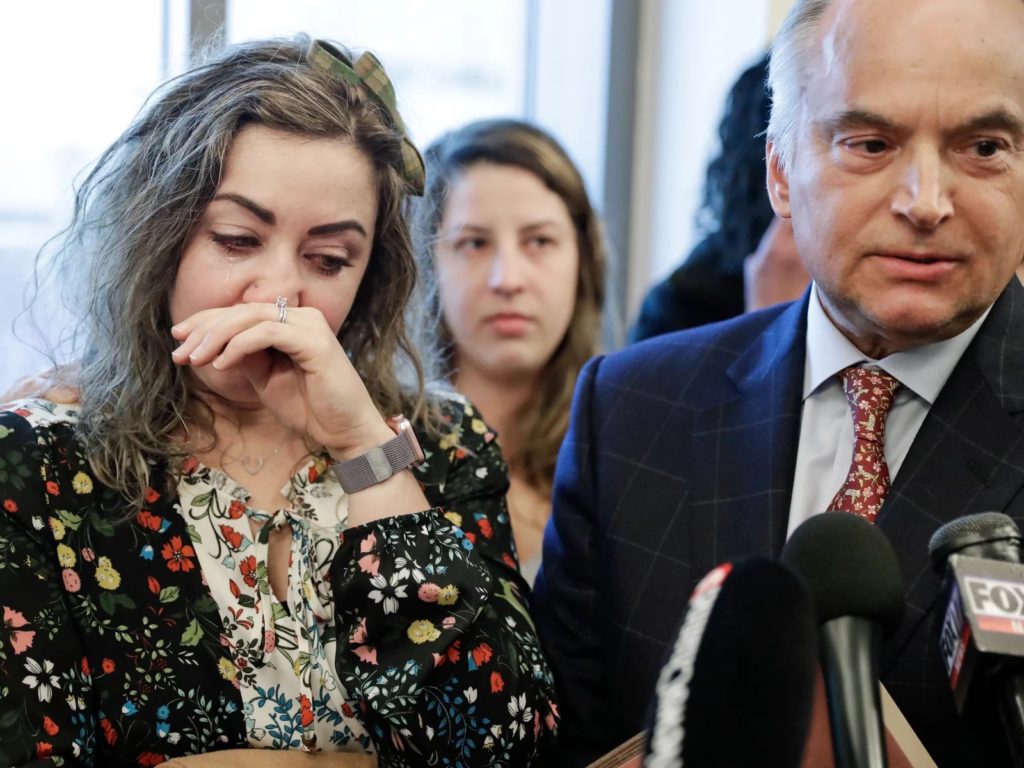
The name RaDonda Vaught is now well-known by nurses nationwide. She worked in critical care at Vanderbilt University Medical Center, and she awaits sentencing May 13. Her negligent homicide conviction for a medication error is weighing heavy on a weary profession.
Nurses couldn’t help but put themselves in Vaught’s place, with many saying so publicly on social media.
“I made some mistakes that … I didn’t sleep for three days,” says Katy Greene Davis, a former trauma nurse at Johns Hopkins in Baltimore, who transitioned away from the bedside a year ago.
Davis says nurses are going to be more reluctant to jump into life-and-death situations. And when mistakes happen, they’ll have every reason to clam up.
“It’s going to become us-versus-them when it has to be — for the safety of the patient — all for one and one for all,” she says.
In Vaught’s case, she mistakenly gave 75-year-old patient Charlene Murphey a powerful paralytic injection rather than a sedative with a similar name. She admitted the grievous error immediately — acknowledging all the warnings she missed along the way. Murphey died.
Vaught was initially cleared by the Tennessee Board of Nursing, but local prosecutors pressed charges. As soon as the guilty verdict was read in late March, Vaught stepped out of the courtroom and addressed nurses watching in-person and online.
“Do what you do. Do it well. And don’t let this defeat you, mentally,” she said.
The judge has wide discretion, but Vaught could face jail time. Many nurses have indicated they plan to rally outside the courthouse during sentencing. More than 200,000 have signed an online petition asking for clemency.
Her former employer has not faced punishment. Vanderbilt settled with the family and did not help with Vaught’s defense. The hospital has not commented on the case, despite repeated requests from WPLN News.
After the guilty verdict, prosecutor Chad Jackson was pressed about whether other nurses can expect criminal charges.
“This was not a case against the nursing community. This was about the actions of one individual,” he said.
The case has been used by candidates vying to replace Nashville District Attorney Glenn Funk, promising not to prosecute health care workers if elected. Funk has been defending his decision to charge Vaught since the verdict was reached, most recently on Wednesday’s This Is Nashville. He says 30 medical professionals reviewed the investigation before charges were filed and that the primary purpose was to keep her from working as a nurse ever again.
“A jury that included two medical professionals — one of whom was a nurse — convicted RaDonda Vaught,” he said. “Our job is public safety, and we wanted to make sure the public was safe and she could not continue to be a nurse.”
But the conviction piles on top of all the pandemic-related headaches and heartaches nurses have had to endure. Alyssa Brady of Roseville, Ohio, is one of the many nurses who donated to help pay Vaught’s legal fees. She also joined fellow nurses in Ohio establishing a nonprofit called Nurse Guardians. Part of its mission is to help fund legal defense for nurses who, like Vaught, may face jail time for a medical error.
“She’s just the first one to be thrown on the chopping block,” Brady says. “And it did light a fire under the nursing community. We are not going to stand for this.”

